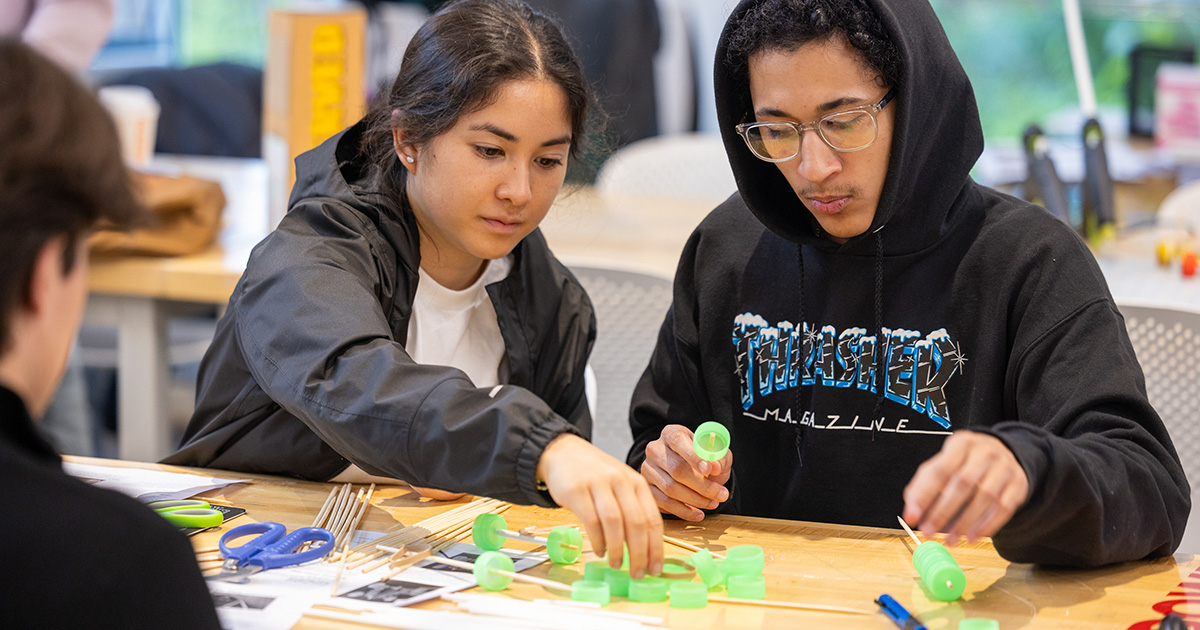What Exactly Does It Do? Female Entrepreneurs on the Art of the Technology Pitch

As a female entrepreneur in the tech industry, you have the odds stacked against you. Statistics show that only 17 percent of startups have a female founder and only 20 percent of tech jobs are held by women. For the female entrepreneurs who are thriving in the tech space, the pressure is on to craft the perfect business pitch. To do that, they must rise to these challenges facing founders of technology companies today.
How do you explain what your technology does to a general audience? How do you show the true impact your innovation will have on the world? Meet three female entrepreneurs who are pros at successfully pitching their technology to investors.
They have years of experience in the world of tech and pitching competitions and have been recognized by Inc. magazine and BostInno for their disruptive technologies.
Bryanne Leeming MBA’16 is the founder and CEO of Unruly Studios, a company empowering children to learn critical STEM skills through active, social, recess-style play. She has honed her pitching skills during recent appearances at B-School Disrupt, Amazon Alexa Accelerator powered by Techstars, and the Small Biz Salute Pitch Off contest by Inc. magazine and The UPS Store.
Rachel Pardue ’19 is the founder and CEO of LOU, a technology that is empowering customer success teams to create interactive web tutorials for technology products. She pitched with Bryanne Leeming at B-School Disrupt and is continuing to build her business to pitch in the future.
Mara-Florina Steiu ’20 is one of the co-founders on an all-female team at ignitED, a company making high-quality college admissions counseling affordable and accessible to all high school students. She participated in Babson’s Summer Venture Program at The Arthur M. Blank Center for Entrepreneurship and is continuing to grow her business while finishing her studies at Babson College.
Here is their advice on how to create and deliver an impactful pitch as a female entrepreneur in the tech industry.
Know Your Stuff
It’s imperative you know your technology inside and out. “Knowing your technology enough to be able to talk about the specifics, that will really make you stand out as a founder,” said Leeming, who has been underestimated when pitching in the past. Being able to clearly communicate the specifics of how her technology works has helped her overcome that challenge.
Knowing your technology isn’t the only thing you need to master. “Above and beyond knowing your numbers, backing them up with a solid financial model is key,” said Leeming. Mastering those aspects of your business will set you apart from the rest.
Know Your Audience
When pitching technology, knowing your audience is almost as important as understanding the technology itself. “I always try to put myself in the audience’s shoes. Do they understand what I’m saying, or am I not being clear enough? Why would they care about this specific piece of information?” said Steiu. How innovative and impactful a technology is won’t matter if it doesn’t resonate with your audience.
Initially, Leeming struggled with audiences not understanding the market she was targeting. “People didn’t associate schools with technology,” said Leeming.
She also had to overcome bias. “There is a bias against hardware companies that the manufacturing is so hard and slow, but it is actually lower-cost and faster than ever,” she said. Overcoming that required another level of education for her audiences, which was vital to create buy-in for her company.
The bottom line: understanding your audience each and every time you pitch is the difference between a great idea and a great idea with funding.
Don’t Get in Your Own Way
Pardue identified confidence as the most important skill when pitching your business. “Confidence is something I personally had to work on,” said Pardue, referencing research that women only apply for jobs that they are 100 percent qualified for, while men will apply for jobs for which they are only 60 percent qualified. “I needed to make sure that I didn’t hold myself or my business back because of my lack of confidence. At the end of the day, if you believe in your business and your mission, that is what it is all about.”
Steiu echoed this sentiment by reinforcing the importance of being yourself. Confidence looks different for everyone, and authenticity is what resonates. “While many men appear very confident and loud on stage, don’t think that being a bit shy, gentle, or different is a bad thing. In the end, you must represent yourself and your brand, so you should be unique.”
Turn Risk into Opportunity
Studies have shown that female entrepreneurs are more often asked questions about risk. According to an article in Harvard Business Review, “[Venture capitalists] tended to ask men questions about the potential for gains and women about the potential for losses. We found evidence of this bias with both male and female VCs.”
Leeming has experienced this in discussions with VCs about funding, but she uses it to her advantage. “Early on, another female founder gave me advice to reframe risk-focused questions with opportunistic answers,” said Leeming. This gave her an opportunity to talk about the bigger picture. Not solely about what can go wrong, but what can go right.
Nurture the Village
All three founders spoke to the vibrant and strong network of other female entrepreneurs who have helped them grow and perfect their pitch. Leeming, a graduate of Babson’s Women Innovating Now (WIN) Lab®, an all-women accelerator program, recognizes “having a community of other female founders to talk to, lean on, and collaborate with” is key to success.
As an undergraduate at Babson, Pardue studied for a semester in San Francisco while working on her business. She found experiences with women in Silicon Valley to be inspiring and energizing. “The most incredible thing for me, of being a female founder, is that there were so many professional women in tech in San Francisco,” said Pardue. “As soon as they met me, they all wanted to take me under their wing—and now we want to give back and support other female entrepreneurs.”
Continuing to give back to the ever-growing group of female entrepreneurs who are building one another up, and utilizing the network, is essential to the continued success of women in tech everywhere.
Posted in Community



